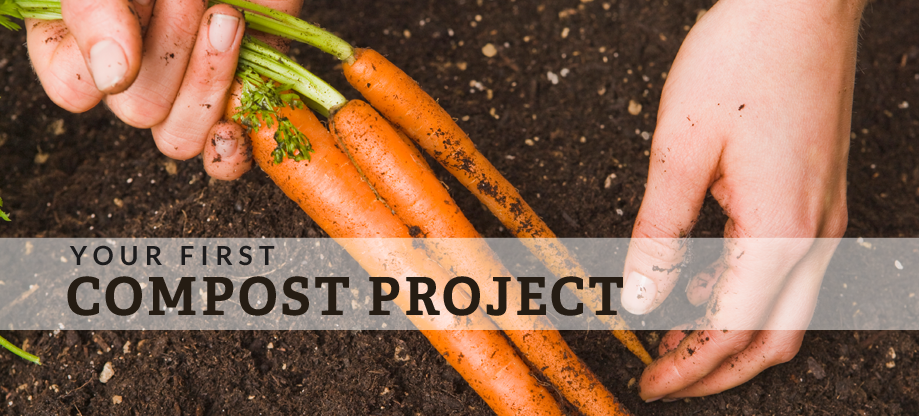A Quick Guide to Starting Your First Compost Project

Now that the winter ice and snow is behind us, you can start planting your spring garden on your new land! This exciting and momentous occasion will be followed by plenty of work, so don’t get discouraged too soon. Unfortunately, you don’t have time to start a compost pile that will mature in time to use this season, but you can work your first garden while preparing compost for next year.
If you’ve never started a compost pile, you may need some pointers to get you started and keep you going. First, know the materials you can add to your compost heap. You’ll want a mix of nitrogen- and carbon-rich material to keep the levels balanced.
Carbon-Rich Material
Leaves, shrubbery, straw or hay, pine needles, wood ashes, newspaper, cardboard, and corn stalks are all rich in carbon. The smaller the pieces when you add them to the pile, the faster they’ll break down and start adding nutrients to your compost. Shred leaves and cut corn stalks into manageable pieces, and you’ll see a faster maturation.
Nitrogen-Rich Material
Vegetable and fruit scraps, grass clippings, weeds, flowers, seaweed, chicken manure, coffee grounds, and tea leaves all contain nitrogen that will balance the carbon on your compost. Any grass, flowers, and leaves you add to the pile should be free of disease. Also, be sure they haven’t gone to seed before you add the to the mix.
Getting Started
- Start with bare earth.
- Lay twigs or straw a few inches deep.
- Add material in layers, alternating moist and dry.
- Add manure.
- Moisten compost.
- Cover to avoid too much moisture.
- Turn on occasion.
Bare earth allows worms and other organisms to aerate the compost. Don’t discourage these creatures from taking up residence. You’ll also want to make sure drainage can occur when you water your compost. Dry materials can help to balance the moisture, but don’t rely on them too much.
Finally, the materials you add to your compost should be more carbon-heavy than those with nitrogen. You’ll need to pay close attention to what you add when to maintain that balance. Too much nitrogen, and your compost will be heavy and smelly, and it also won’t help much in your garden.
Kickstarting the Process
A natural compost heap is the most effective, but you can give it a boost by adding more comfrey leaves, grass clippings, green weeds and rotten chicken manure. Don’t add too much, or your compost will have too much nitrogen. Just the right amount, however, will speed up the process by breaking everything down faster.
Your compost is ready to use in your gardens when it’s a rich brown and crumbly to the touch. This usually takes four to six months. With the kickstart to your compost, you may see it a little sooner.
If you’re looking for rural land so you can garden to your heart’s content, give us a call. We have several large lots available in Tennessee, Georgia, and South Carolina that you can take possession of the moment you make a down payment. We want to help you claim your piece of forever, so give us a call now.
